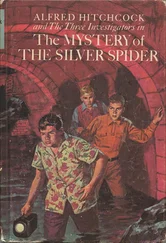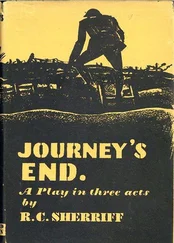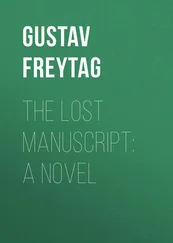Роберт Шеррифф - The Hopkins Manuscript
Здесь есть возможность читать онлайн «Роберт Шеррифф - The Hopkins Manuscript» весь текст электронной книги совершенно бесплатно (целиком полную версию без сокращений). В некоторых случаях можно слушать аудио, скачать через торрент в формате fb2 и присутствует краткое содержание. Год выпуска: 2018, ISBN: 2018, Издательство: Penguin Books, Жанр: sf_postapocalyptic, humor_satire, на английском языке. Описание произведения, (предисловие) а так же отзывы посетителей доступны на портале библиотеки ЛибКат.
- Название:The Hopkins Manuscript
- Автор:
- Издательство:Penguin Books
- Жанр:
- Год:2018
- ISBN:978-0-241-34908-3
- Рейтинг книги:4 / 5. Голосов: 1
-
Избранное:Добавить в избранное
- Отзывы:
-
Ваша оценка:
- 80
- 1
- 2
- 3
- 4
- 5
The Hopkins Manuscript: краткое содержание, описание и аннотация
Предлагаем к чтению аннотацию, описание, краткое содержание или предисловие (зависит от того, что написал сам автор книги «The Hopkins Manuscript»). Если вы не нашли необходимую информацию о книге — напишите в комментариях, мы постараемся отыскать её.
The Hopkins Manuscript — читать онлайн бесплатно полную книгу (весь текст) целиком
Ниже представлен текст книги, разбитый по страницам. Система сохранения места последней прочитанной страницы, позволяет с удобством читать онлайн бесплатно книгу «The Hopkins Manuscript», без необходимости каждый раз заново искать на чём Вы остановились. Поставьте закладку, и сможете в любой момент перейти на страницу, на которой закончили чтение.
Интервал:
Закладка:
Robin had taken advantage of the lack of clothing materials to build up a thriving little business in rabbit skins for coats. For my own part I sent an average of five dozen eggs to market every week and I have already referred to the eager and increasing demand for ‘Beadle-Hopkins’ pullets.
We were a happy, vigorous little community, made happier by our increasing friendships in the town of Mulcaster. As the days drew on and the winter came, my belief in the emptiness of Major Jagger’s scaremongering fully justified itself. The scientific report upon the wealth of the moon was duly published, became a seven-day wonder in Mulcaster and was quickly forgotten. The town was far too busy with its reconstruction plans: far too engrossed with its growing prosperity to concern itself overmuch with the problematical riches in the bowels of the moon.
‘Steel’s what we want,’ said old Mr Wilkins the Market Manager. ‘Steel and cement to build our houses – and a bit o’ good timber thrown in. There’s plenty of that in old England – let them that wants gold and platinum go digging up the moon.’ And Mr Wilkins expressed the sentiment of the whole of Mulcaster.
By Christmas the cement began to come from the Portland Quarries and by early spring a start was made upon the roads. Mulcaster was to be rebuilt in ten years upon a fine, inspiring plan. Broad avenues, with each house in its own half-acre of land.
Although I lived eight miles from the town, the prosperity of my farm and the fame of the Beadle-Hopkins pullets had made me a man of considerable importance in Mulcaster. My opinion was sought upon all serious poultry matters and we began to entertain upon a scale that would have astonished me in my old pre-cataclysm days.
Dr Cranley and his son and daughter were frequent visitors to dinner and the growing friendship of my ‘children’ and his was a source of pleasure to both of us.
The days of loneliness that I had feared had not materialised, for frequently, when Pat and Robin were going to a dance, they would take me with them and I would dine with some prominent people in Mulcaster and stay there until Robin was ready to drive me home.
Most of the people were still living in temporarily repaired houses: some even in wooden huts, pending the rebuilding of the town, and everybody continued, voluntarily and cheerfully, to give two hours of each day in service to the community.
The first of January 1948 was the greatest day since the cataclysm: the Official Opening Day of the Ten-Year Rebuilding Plan throughout the whole of England. Luckily it kept fine. It was just like a Jubilee Day in Mulcaster and we took a full day’s holiday from the farm, driving in early to enjoy the celebrations.
At eleven o’clock the whole town assembled in the Market building, which used to be the old Town Hall. A platform had been specially arranged at one end, decorated with flags; a big cardboard shield, brightly painted with the town coat of arms, hanging in the centre.
Mr Ponsonby, the Mayor, opened the ceremony with a remarkably good speech – quite inspiring, and not too long.
‘We shall build a city,’ he concluded, ‘which will immortalise us here this morning to generations of Mulcastrians to come: a city that will stand for all time as a monument to the self-sacrifice, courage and craftsmanship of all of us in this Hall today. A hundred years hence the citizens of this town may build a monument in the public gardens which we shall lay out for them: a monument with a simple dedication: “To those heroic Mulcastrians who survived the cataclysm and built this noble town”.’
The speech had a wonderful reception, and the Mayor was followed by Captain Weeks, the Borough Architect, who unrolled a large coloured plan of the new Mulcaster and explained it in a most interesting way.
The new city was to be built on slightly higher ground to the west of the old town, and the old buildings were eventually to be pulled down to make a public park beside the river – all except the old Town Hall, which was to remain as a Museum.
The plan of the new city was bold and simple: a fine wide main street was to lead to the Market Square with the Town Hall and Public Buildings grouped around it.
‘Never again,’ declared Captain Weeks, the architect, ‘shall the people of this town be herded together in stuffy rows of houses. Every dwelling, large or small, will have half an acre, in some cases a full acre of land attached. Mulcastrians will no longer be forced to walk a mile beyond the town to their vegetable allotments. Every man will have room in his own garden for all that he needs!’
When the meeting was over we formed a procession and marched with quite a lively little brass band to the site of the new city, where the Mayor cut the first square of turf from the place where the new Town Hall was to stand.
The sun shone gloriously over the happy scene and everybody was in wonderful spirits. By one o’clock we were back in the Market building where trestle tables had been rapidly laid for a celebration lunch. In the old days, when Mulcaster numbered 3,000 people, only the most important persons could have sat down to a lunch of this kind. Today the whole town – every one of the 436 survivors of the cataclysm – was able to sit down together, with 83 children in a big tent nearby. It is hard to realise what a difference this meant in the spirit of the town: everybody had a place at the table: everybody an important job – none were useless – none were unemployed. Distinctions of class were gone for ever and I sat with Mrs Smithson, the wife of a plumber, and Miss Bingham of the drapery store, talking to them almost as if they were my equals.
When Mr Ponsonby, in his after-luncheon speech, announced that there were twenty-three little newcomers to the population of Mulcaster since the cataclysm (eleven boys and twelve girls) the cheering nearly lifted the old patched roof of the building!
Life began afresh in Mulcaster that day. All the suffering and privations of the past were forgotten in the glorious promise that lay ahead. I try not to remember those happy, excited faces as we rose to drink the toast: ‘To Mulcaster! – to the new city!’ The memory of them overwhelms me. In that moment of silence a vision came to me: the vision of broad, tree-girt avenues and clean white houses upon the green hillside beyond the Hall: of happy children in the shady Parks: fresh air – warm, friendly houses – peace – purpose – happiness…
We drank the toast in the first cask of ale from the new-built Mulcaster Brewery. Even that was a symbol to conjure with!
In the afternoon I took advantage of the unusually big gathering to do a little business. I received orders for two dozen Beadle-Hopkins pullets from gentlemen desiring to start small farms of their own. I discussed with Mr Johnson Betts, an old poultry acquaintance of mine, the possibility of reviving the Mulcaster Poultry Show in the spring. He considered it an excellent plan to stimulate the aesthetic interest in poultry, as distinguished from the purely commercial viewpoint, and I readily accepted his suggestion that I should act as Organising Secretary for the first show.
What a delightful evening I spent when I got home!
Far into the small hours I sat, all my old books and papers spread before me as I revived old memories of past triumphs! I drafted preliminary announcements: a list of events and classes: a guide to judges in view of the inevitably poor quality of the first exhibits. I even conceived a new and novel departure – a veterans’ competition! I determined to show my dear old Broodie, now almost five years old. How wonderful if Broodie, at her age, could win another prize! – her fifty-first First Prize!
A cock crew from the distant hillside: I glanced at my watch in astonishment – three o’clock! I went to bed in a drowse of happiness.
Читать дальшеИнтервал:
Закладка:
Похожие книги на «The Hopkins Manuscript»
Представляем Вашему вниманию похожие книги на «The Hopkins Manuscript» списком для выбора. Мы отобрали схожую по названию и смыслу литературу в надежде предоставить читателям больше вариантов отыскать новые, интересные, ещё непрочитанные произведения.
Обсуждение, отзывы о книге «The Hopkins Manuscript» и просто собственные мнения читателей. Оставьте ваши комментарии, напишите, что Вы думаете о произведении, его смысле или главных героях. Укажите что конкретно понравилось, а что нет, и почему Вы так считаете.












